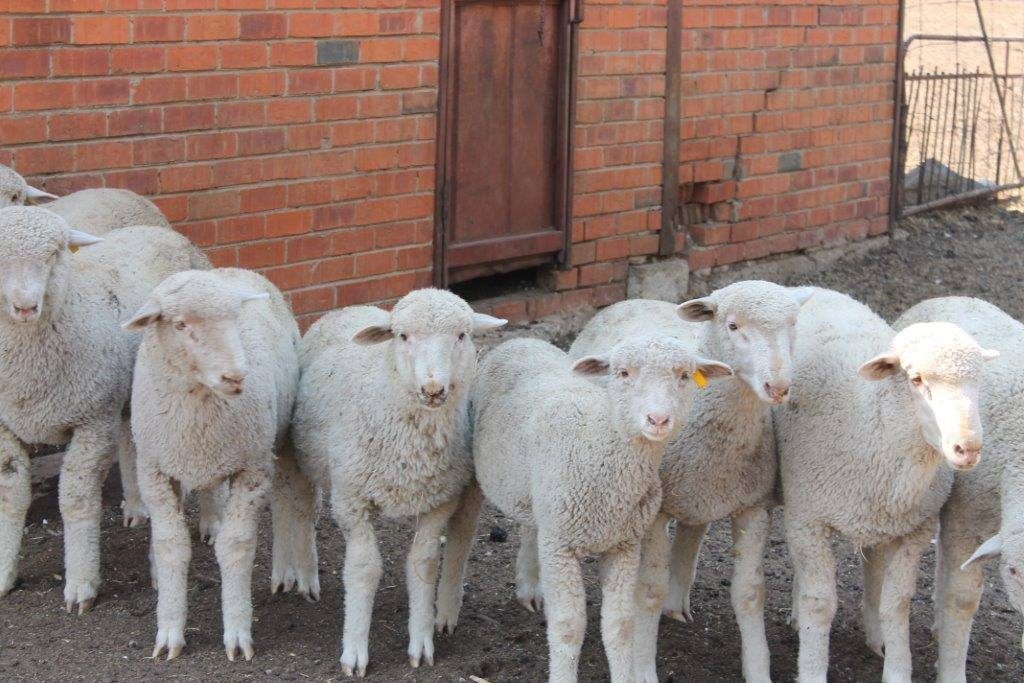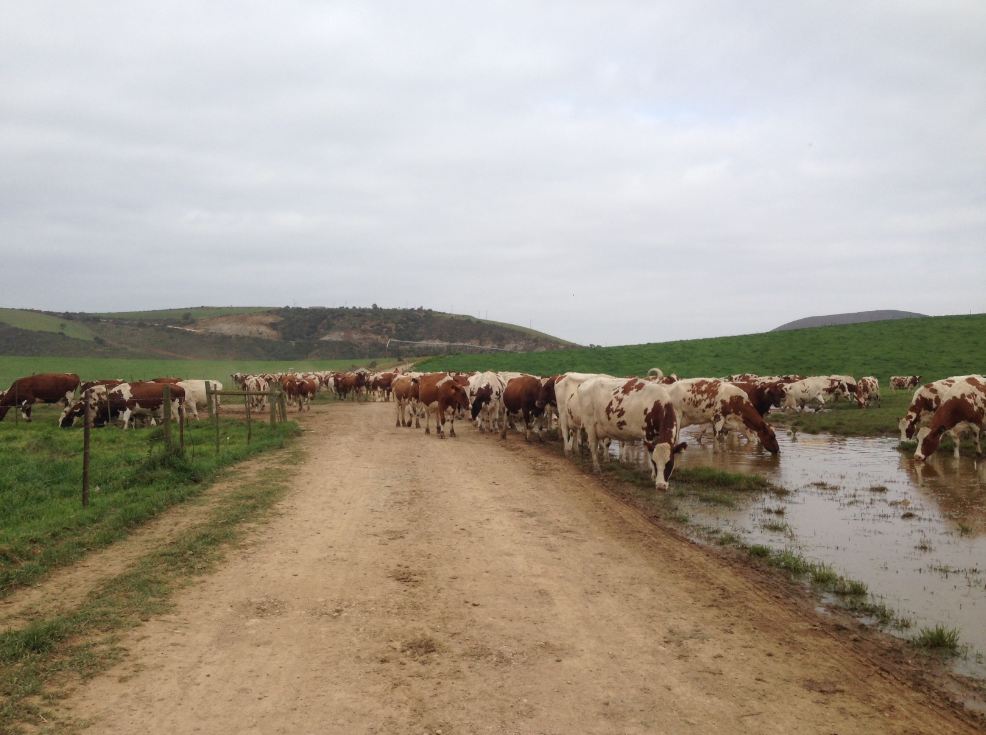Nuwe hulplyn help landbouers met veediefstal
15
February

Om die enorme impak van veediefstal beter te bepaal, tendense raak te sien én inligting te versamel om dit te bekamp. Dis volgens dr Jane Buys, Veiligheidsrisiko-analis van Vrystaat Landbou (VL), van die redes waarom ’n veediefstal-hulplyn in die Vrystaat begin is.
“Misdaadstatistieke wys dat tussen 67% tot 80% van veediefstal nie aangemeld word nie,” sê sy.
Die hulplyn, wat deur VL en die Rooivleisprodusente-organisasie (RPO) – in samewerking met die Nasionale Wolkwekersvereniging (NWKV) in die provinsie – begin is, sal onder meer help met die aflê van verklarings en ondersoeke monitor. Dit is sedert 1 Februarie 2019 in werking en speel ’n ondersteuningsrol aan die Suid-Afrikaanse Polisiediens (SAPD), binne die Landelike-beveiligingstrategie, om proaktief op te tree. Die SAPD in die Vrystaat het ook sy amptelike ondersteuning vir die inisiatief deurgegee.
Regte syfers belangrik
Volgens ’n VL impak- en omvangstudie van misdade op kommersiële landbou in 2017, was veeverliese in die Vrystaat tussen sowat R1 tot R3 biljoen per jaar.
Agri SA se Nasionale Landbousektor-misdaadopname wat deur die Buro vir Marknavorsing by Unisa gedoen is, het bepaal die Vrystaat en Noord-Kaap was in 2017 die provinsies wat die ergste onder veediefstal deurgeloop het. Daar was nagenoeg 26 175 insidente slegs in die Vrystaat. Veediefstal is die voorste landboumisdaad in die provinsie en ’n kommersiële landbouer beleef jaarliks sowat agt insidente.
Johann Stadler, Voorsitter van die Veediefstal-voorkomingsforum van die Vrystaatse RPO, sê ’n jaarlikse VL oudit van die Landelike-beveiligingsplan, het probleme met veediefstal-aanmelding uitgewys. Hieronder tel taal en kommunikasie tydens die aflê van ’n A1-verklarings by party polisiestasies.
“Die hulplyn sal help om verklarings so te kry dat dit verstaanbaar en leesbaar vir almal betrokke is, sodat die ondersoek van die begin af binne die kriminele regstelsel goed kan verloop,” sê hy. “Dit sal landbouers ook bystaan oor byvoorbeeld hoe om die misdaadtoneel te bewaar.”
“’n Mens kan nie veediefstal doeltreffend aanspreek en bekamp as jy nie die regte aanmelding en omstandighede het nie,” sê Buys. Volgens haar is dít ook belangrik om voorkomingsoperasies te loods en die korrekte inligting aan die SAPD en Nasionale Vervolgingsgesag deur te gee.
Verder meen sy die hulplyn sal landbouers se betrokkenheid by die bekamping verbeter en kan daar grotendeels op voorkoming gefokus word.
Hoe werk dit?
Die hulplyn word deur Mientjie Kok, ’n data-analis en voormalige polisielid, beman. Sy sal landbouers bystaan met die aflê van verklarings en hul vrae oor die proses beantwoord.
Volgens Buys word die verklaring per e-pos na die klaer teruggestuur om die feite te bevestig en dit in die teenwoordigheid van SAPD geteken.
Daar word beoog om die hulplyn, wat tans ’n drie maande proeftydperk volg, tot ’n 24-uur sentrum uit te brei om landbouers veral oor naweke by te staan. “Ons doen ’n beroep op landbouers om die hulplyn te gebruik, sodat veediefstal doeltreffend bekamp kan word,” sê Buys.
Kontakbesonderhede
- Die hulplyn-nommer wat gebel kan word is: 086 199 9300.
- Indien die nommer beset is, kan ’n landbouer ’n WhatsApp-boodskap met sy of haar kontakbesonderhede (naam, van, plaasnaam, tel nr en foto van brandmerk-sertifikaat) na 079 524 5040 stuur. Dié nommer is slegs vir WhatsApp-boodskappe.
- Andersins kan ’n stemboodskap of e-pos met kontakbesonderhede gelos word. Die e-pos adres is vee@vslandbou.co.za

New helpline assists farmers to combat livestock theft
To better assess the enormous impact of livestock theft, see trends and gather information to combat it. According to Dr Jane Buys, Safety and Risk Analyst at Free State Agriculture (FSA), these are some of the reasons why a stock theft helpline was started in the Free State.
“Crime statistics show that between 67% and 80% of stock theft is not reported,” she says.
The helpline, launched by FSA and the Red Meat Producers Organization (RPO) – in collaboration with the National Wool Growers Association (NWGA) in the province – will among other things help to make statements and monitor investigations. It has been in operation since 1 February 2019 and plays a supporting role to the South African Police Service (SAPS), within the Rural Safety Strategy, to act proactively. The SAPS in the Free State has also given its official support for the initiative.
Correct figures important
According to a FSA impact study of commercial agriculture crimes in 2017, livestock losses in the Free State were between about R1 and R3 billion a year.
Agri SA’s National Agricultural Sector Crime Survey, conducted by the Bureau of Market Research at UNISA, determined the Free State and Northern Cape were the provinces that suffered the most from stock theft in 2017. There were approximately 26 175 incidents just in the Free State.
Stock theft is the leading agricultural crime in the province and a commercial farmer experiences about eight incidents every year.
Johann Stadler, Chairman of the Free State RPO’s Stock Theft Prevention Forum, says an annual FSA audit of the Rural Safety Plan pointed out problems with stock theft reporting. Of these are language and communication when making A1 statements at some police stations.
“The helpline will assist to get the correct statements so that it is understandable and readable to everyone in order for the investigation to run smoothly from the start within the criminal justice system,” he says. “It will also assist farmers for example on how to preserve the crime scene.”
“One cannot effectively address and combat stock theft if you do not have the right numbers and circumstances,” Buys says. According to her, it is also important in launching prevention operations and passing on the correct information to the SAPS and National Prosecuting Authority.
She also believes the helpline will improve farmers’ involvement in combating and there can rather largely be focused on prevention.
How does it work?
The helpline is run by Mientjie Kok, a data analyst and former police officer. She will assist farmers in making statements and answer questions about the process.
According to Buys, statements will be sent back to the complainant via email to confirm the facts and then signed in the presence of SAPS.
The idea is to extend the helpline, which is currently undergoing a three-month trial period, to a 24-hour centre to assist farmers especially over weekends. “We want to encourage farmers to use the helpline so that livestock theft can be combatted effectively,” Buys says.
Contact details
• The helpline number to be called is: 086 199 9300.
• If the number is occupied, a farmer can send a WhatsApp message with his or her contact details (name, surname, farm name, contact no, and photo of branding certificate) to 079 524 5040. This number is for WhatsApp messages only.
• Otherwise, a voicemail or email with contact details can be left. The email address is vee@vslandbou.co.za


